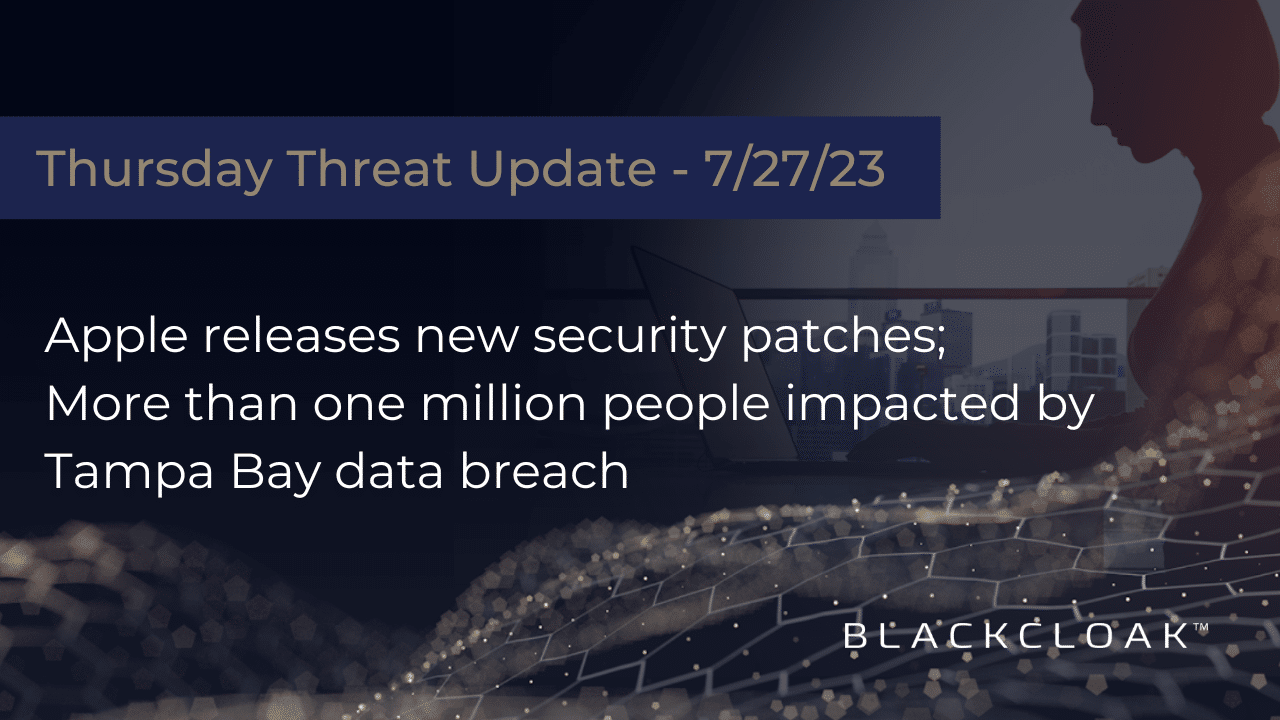Apple releases new security patches; More than one million people impacted by Tampa Bay data breach

Data breaches continue to come at an alarming rate, and it’s no surprise to learn the cost of these incidents continues to go up.
In its’ annual Cost of a Data Breach Report, IBM found the global average data breach cost $4.45 million in 2023, representing a 15% increase over the past three years.
It’s hard to imagine the figure going down any time soon. Regardless of who you are, whether it’s a small business owner, a high ranking executive, or a high-net worth individual, it’s vital to maintain proper cyber hygiene across any and all channels. It could literally save you millions of dollars.
In this installment of the BlackCloak Thursday Threat Update, a data breach affects more than a million Tampa Bay residents, while Apple released a new slate of security updates for its devices.
More than a million people affected by Tampa Bay breach
What we know: A Russian ransomware group is believed to be behind a data breach affecting more than a million Tampa Bay residents. The Clop group was able to compromise the systems belonging to Johns Hopkins All Children’s Hospital, Tampa General Hospital, HCA Hospitals and Hillsborough County. Compromised data points include names, phone numbers, email addresses and Social Security numbers.
Recommendations: As Social Security numbers were compromised in the breach, affected individuals should place a credit freeze and fraud alerts on their accounts as soon as possible. Be on the lookout for phishing emails, as well as SMS text message phishing attacks, which are commonly known as “smishing” scams.
Apple releases security patches for slate of devices
What we know: Apple has released a slate of security updates to address a zero-day vulnerability. The updates are available for a number of Apple devices, including various generations of iPhones, iPads and Macs running different operating systems. This is the 11th zero day vulnerability Apple has patched in 2023.
Recommendations: Anyone who owns one of these Apple devices should download and install these updates as soon as possible. Additionally, you should turn on automatic downloads for any devices when applicable, as you don’t want to miss any potential security updates down the line. For Apple users, it may be a good idea to periodically check Apple’s security update page to see if any patches have recently been released.
Cyber threats can come from anywhere
Practicing good cyber hygiene will help keep cybercriminals out of your accounts, but these bad actors have other ways to obtain your sensitive information beyond stealing passwords and usernames.
Learn how to protect yourself against juice jacking attacks and how cybercriminals can use artificial intelligence for “vishing” scams.








